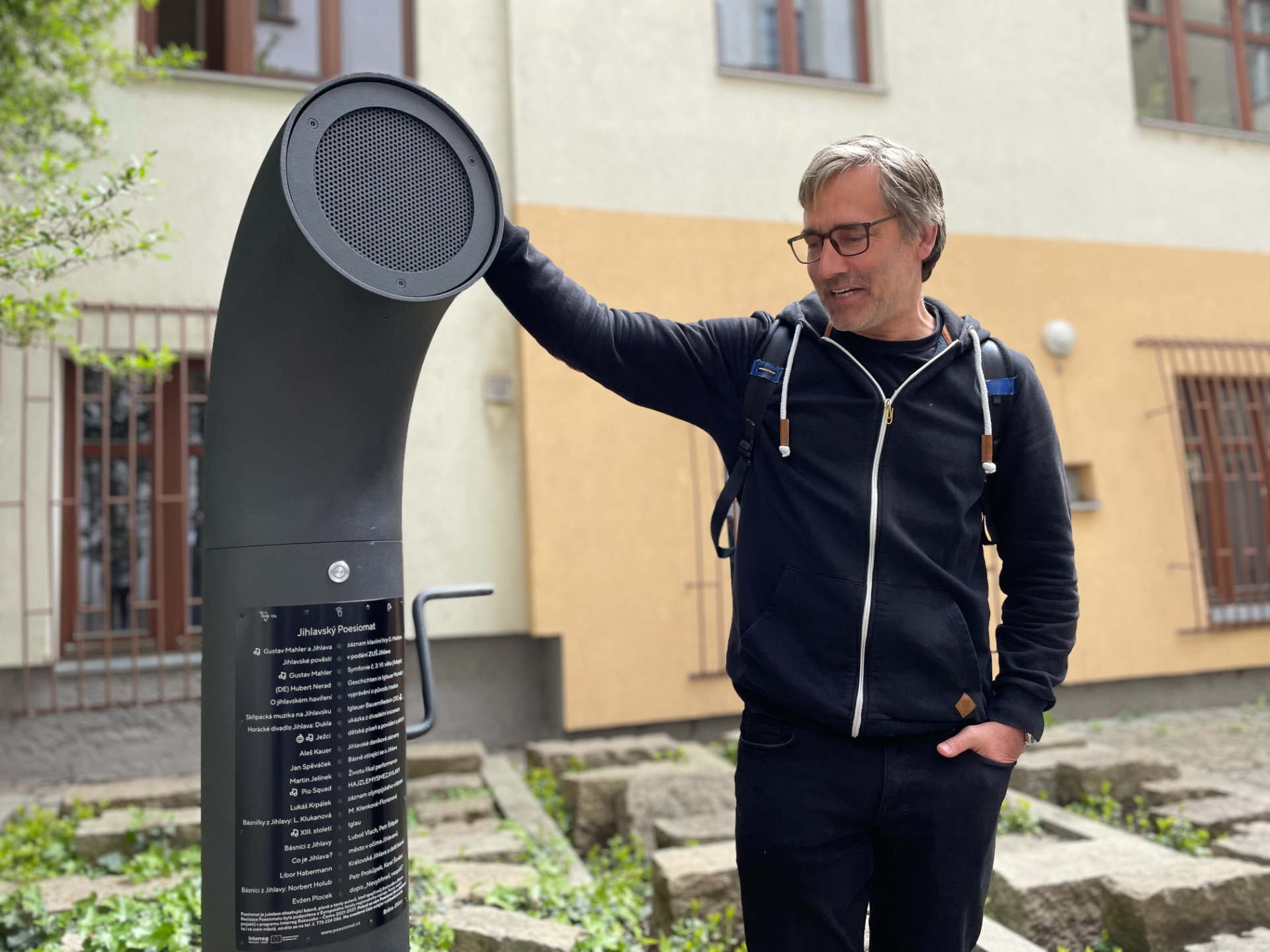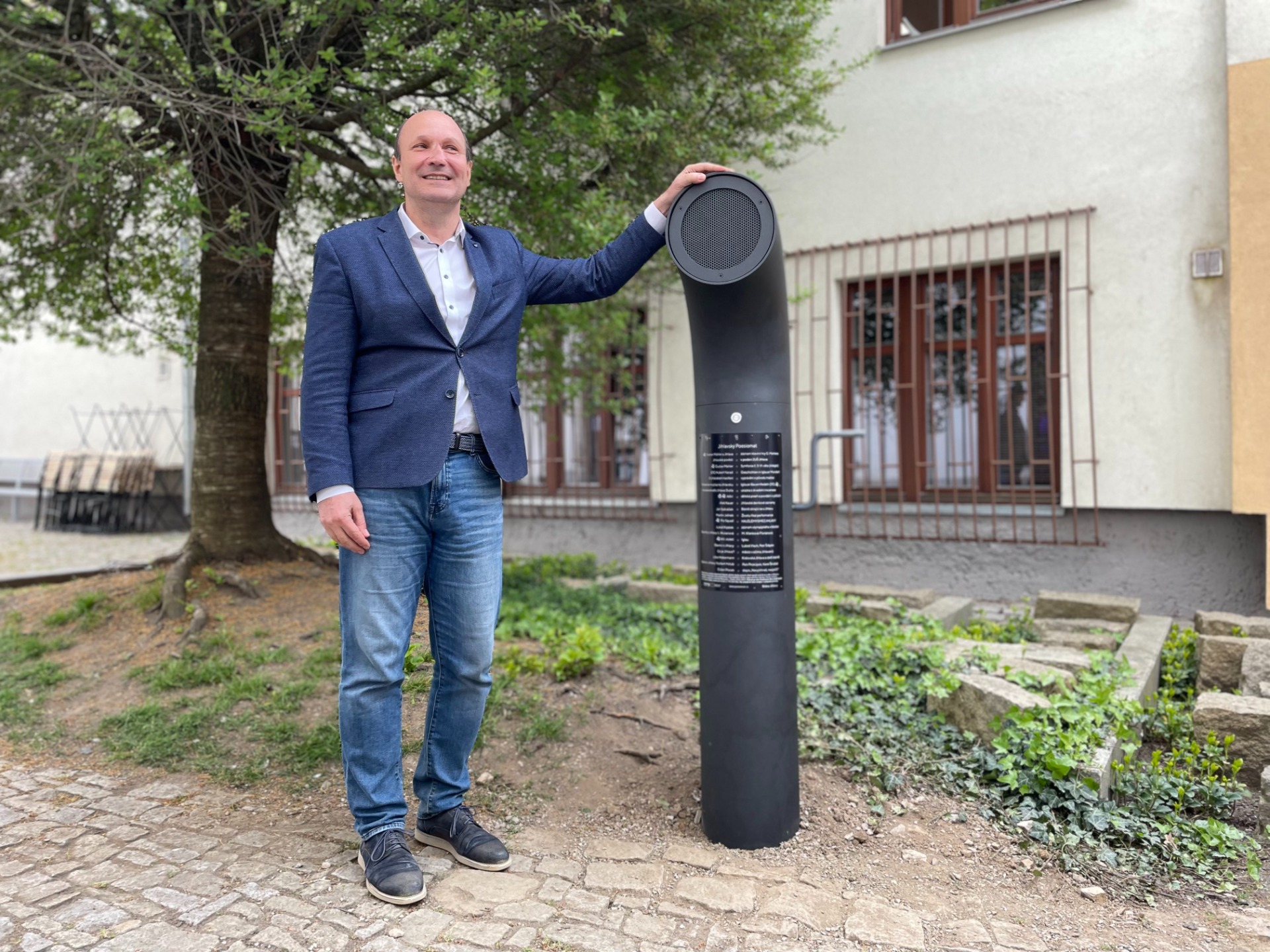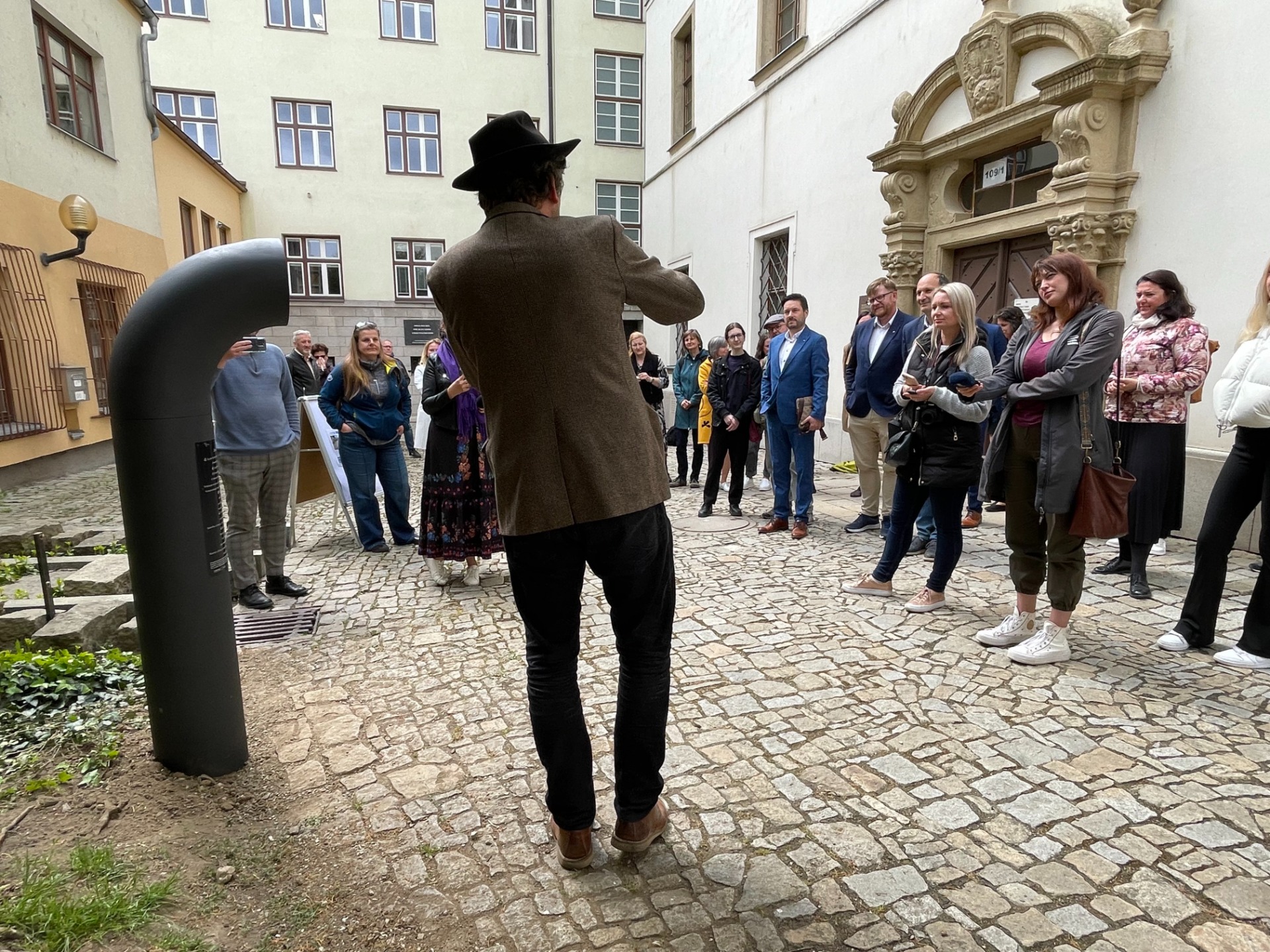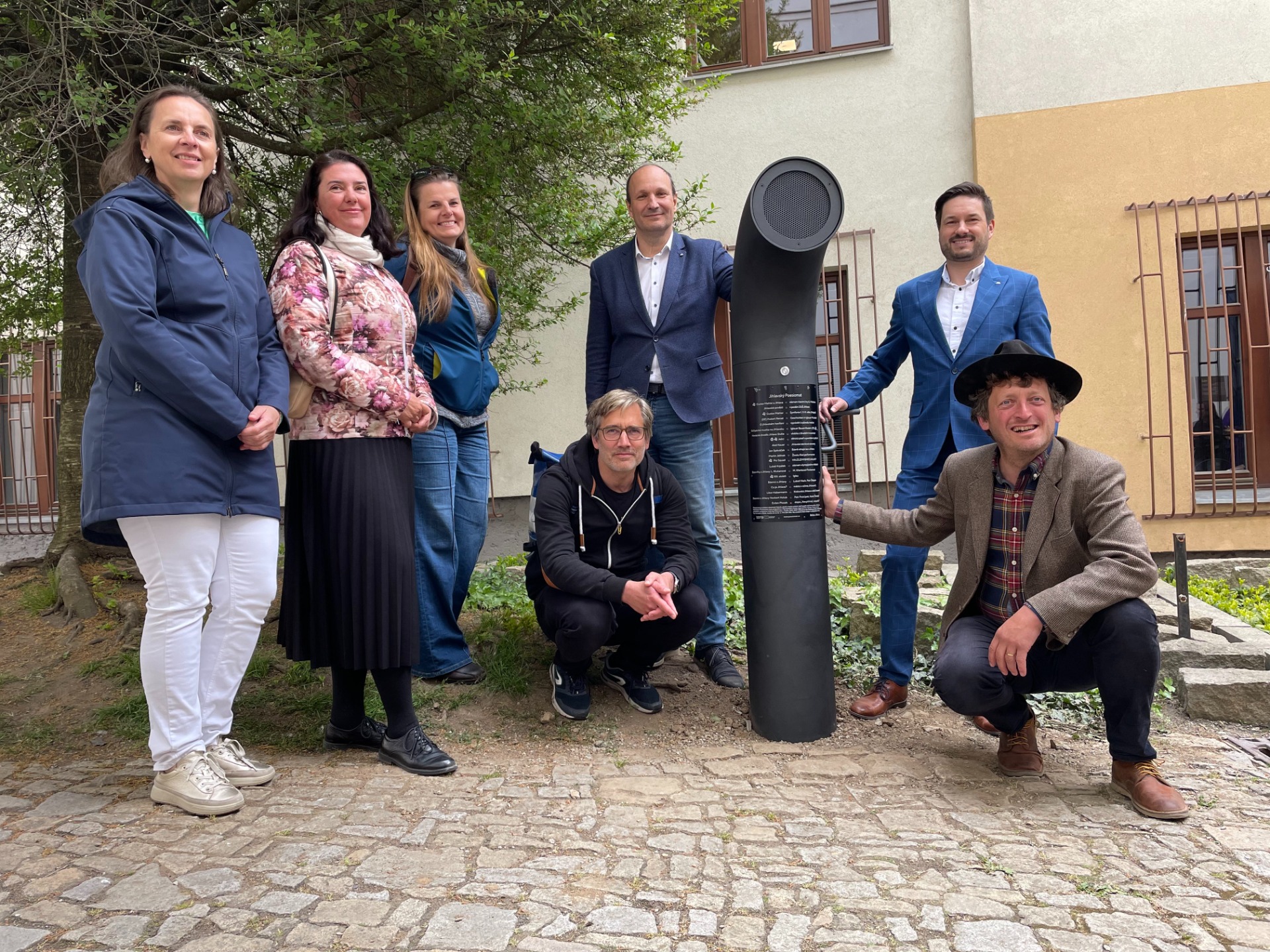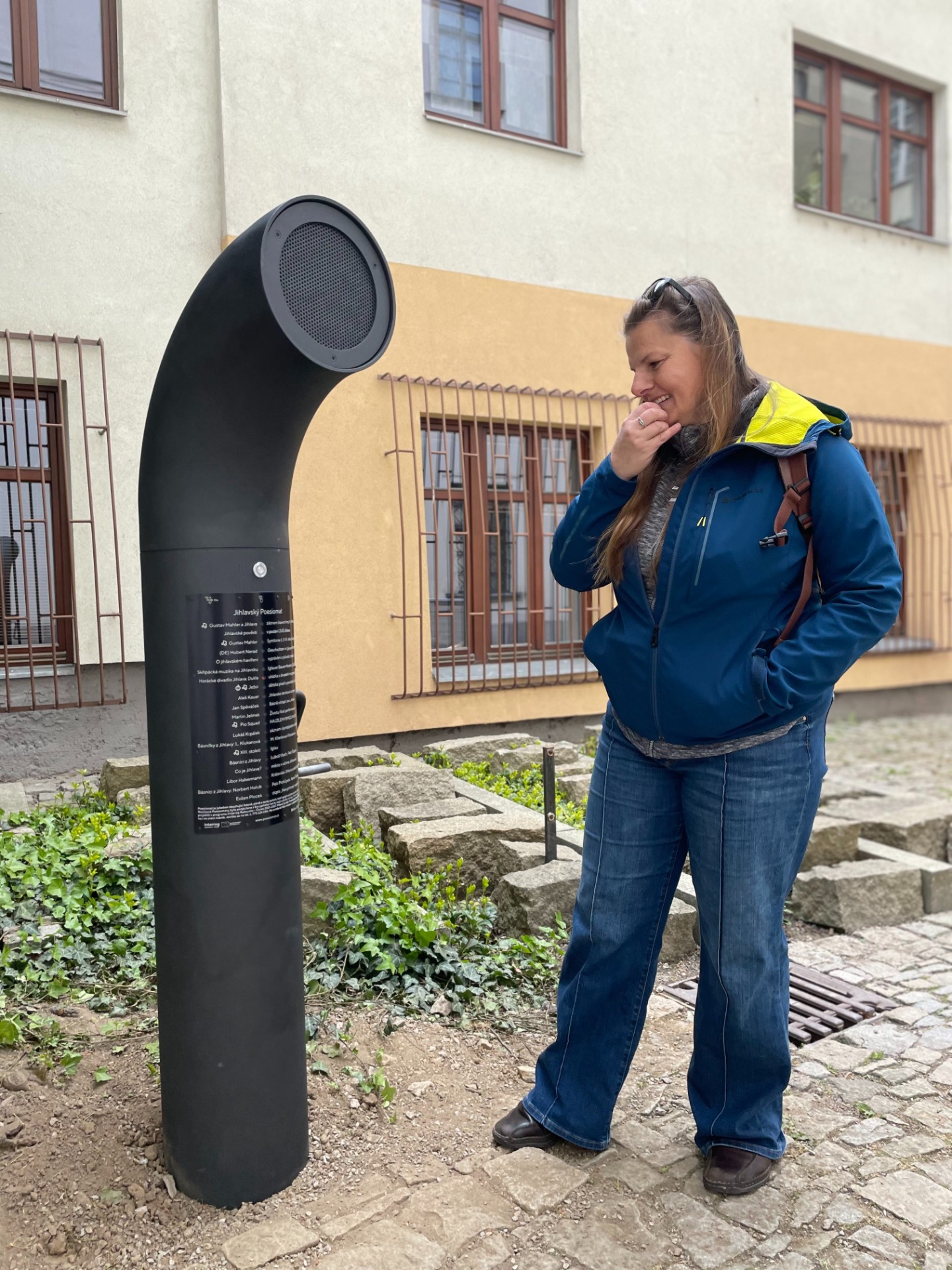Jihlava. A city built on rich silver deposits. A hedgehog in its coat of arms and a zoo in the city center. The main settlement of the former German language enclave on the border between Bohemia and Moravia.
The Jihlava Poesiomat offers listeners a diverse range of audio content connected to the city’s musical traditions. From recordings of piano performances by Gustav Mahler, who spent a significant part of his life in Jihlava, to folk "skřipková" (string) music, and contemporary musical groups such as XIII. století and Pio Squad.
In addition to musical themes, listeners can enjoy works by a number of poets from Jihlava, a sample of the original German dialect once spoken in the region, legends about the founding of the city performed by the Jihlava Elementary Art School, stories about the Jihlava hedgehog, or a recording from the stage play Dukla performed by the Horácké Theatre in Jihlava. The Poesiomat also features an authentic essay by Evžen Plocek—the third human torch after Jan Palach and Jan Zajíc—written after the invasion of Czechoslovakia by Warsaw Pact troops.
Several well-known natives of Jihlava contributed to the creation of the Jihlava Poesiomat. Listeners can look forward to the voice of theater director Jiří Havelka, actor and voice actor Martin Stránský, a story about the miner's parade tradition narrated by Ondřej Vetchý, and poems interpreted by the beloved Jihlava actress Lenka Schreiberová.
The creation of the Poesiomat was made possible through a partnership with the organization Brána Jihlavy and was supported by the European Regional Development Fund and the Small Projects Fund under the Interreg Austria – Czech Republic 2021–2027 program.
Jihlava. A city built on rich silver deposits. A hedgehog in its coat of arms and a zoo in the city center. The main settlement of the former German language enclave on the border between Bohemia and Moravia.
The Jihlava Poesiomat offers listeners a diverse range of audio content connected to the city’s musical traditions. From recordings of piano performances by Gustav Mahler, who spent a significant part of his life in Jihlava, to folk "skřipková" (string) music, and contemporary musical groups such as XIII. století and Pio Squad.
In addition to musical themes, listeners can enjoy works by a number of poets from Jihlava, a sample of the original German dialect once spoken in the region, legends about the founding of the city performed by the Jihlava Elementary Art School, stories about the Jihlava hedgehog, or a recording from the stage play Dukla performed by the Horácké Theatre in Jihlava. The Poesiomat also features an authentic essay by Evžen Plocek—the third human torch after Jan Palach and Jan Zajíc—written after the invasion of Czechoslovakia by Warsaw Pact troops.
Several well-known natives of Jihlava contributed to the creation of the Jihlava Poesiomat. Listeners can look forward to the voice of theater director Jiří Havelka, actor and voice actor Martin Stránský, a story about the miner's parade tradition narrated by Ondřej Vetchý, and poems interpreted by the beloved Jihlava actress Lenka Schreiberová.
The creation of the Poesiomat was made possible through a partnership with the organization Brána Jihlavy and was supported by the European Regional Development Fund and the Small Projects Fund under the Interreg Austria – Czech Republic 2021–2027 program.

